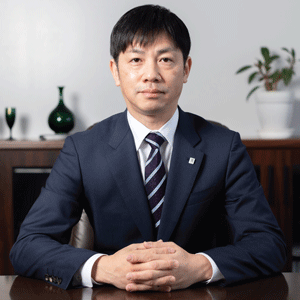
Architectural education aims to produce competent, creative, critically-minded, ethical and professional designers/builders who contribute to society's social, economic, and cultural development – both nationally and globally. Architecture education is an interdisciplinary field that comprises humanities, social and physical sciences, technology, and the creative arts. Today’s architectural education goes beyond just teaching students how to create 2D and 3D drawings, instead requiring students to grasp a wide range of concepts incorporating social, economic, and natural environmental perspectives before completing their designs.
Tohoku Institute of Technology was established in 1964. Located in Sendai, Japan, the University has a unique Department of Architecture that offers a comprehensive and practical education to its students. The department was initially part of the Faculty of Engineering. It was later renamed the Faculty of Architecture to clarify the range of subjects that students can study, from engineering to design and history. It is the fifth Faculty of Architecture to be established in Japan and the first and only Faculty of Architecture in the country's Northern Metropolitan Area, incorporating the Tohoku Region, and Hokkaido. The University’s goals are to foster highly skilled engineers who will play leading roles in industry in Japan, especially in the Tohoku region.
Each year, approximately 160 students are admitted to the school to study various fields such as design, planning, history, materials, production, environmental engineering, structure, and construction methods to provide a comprehensive architectural education. More than 8,000 graduates have graduated from the Department of Architecture, many working in construction companies, design firms, and local governments throughout Japan. The institute collaborates closely with alumni organisations and actively seeks to share real-life social situations in education and research.
Aiming for Excellence
The Architectural Department at Tohoku Institute of Technology was established with the goal of contributing to the creation of a sustainable society and environment by providing architectural studies that enrich the local environment and human society, as well as fostering the acquisition of the knowledge and skills required to construct buildings, plan buildings appropriately, and use buildings to their fullest potential.
Three of the 18 professors and architects employed by the institute are Chinese. Each year, a number of Chinese students are accepted into the faculty's master's and doctoral programs. Prior to covid-19, the institute had a study tour of European architectural culture and an architectural study tour to China every other year having established an agreement with Chung Yuan University in Taiwan, where several students would study for a few months each year in each other's Faculty of Architecture.
Tohoku Institute of Technology recruits faculty members through an open recruitment process in order to acquire talented and necessary personnel. They are chosen based on a variety of criteria, including age structure, fields of expertise, practice and research fields, universities from which they graduated, and gender. Furthermore, in accordance with university regulations, faculty development training, research compliance, and research ethics training are conducted on a regular basis. Through self-assessment and class evaluation questionnaires from students, the institute is constantly striving to improve its educational practices.
Offering Strong Student Propositions
The University provides tuition reductions and exemptions based on international students' financial circumstances. Additionally, there is a system in place whereby Master’s students may be hired on a part-time basis as research and teaching assistants, offering some additional financial support. The Department of Architecture seeks to encourage each students’ independent learning, to nurture confidence and creativity through various opportunities for discussion both within and outside the curriculum in Japan and abroad, and to foster architectural engineers and designers who can contribute to society from the viewpoint of both the creator and the user of buildings.
“All graduates of our Faculty of Architecture are qualified to take the first-class architect exam. The national government has established the subjects required to qualify for the first class architect examination, and our Faculty of Architecture has the most subjects corresponding to those requirements of any university where architecture can be studied in the Tohoku region. The excellent professors here provide a well-balanced and unbiased course of study from design and architectural history to engineering subjects (structure, materials, and equipment)”, explains Prof. Satoshi ISHII.
The Architectural Department at Tohoku Institute of Technology was established with the goal of contributing to the creation of a sustainable society and environment
Tohoku Institute of Technology has a computer room that is open 24 hours a day, a design workroom, a university managed Fab-lab, a woodworking and metalworking shop, and a laboratory with structural experiment equipment such as a consolidation testing machine and a vibration table. Students at Tohoku Institute of Technology are encouraged to actively participate in a variety of activities on and off campus (such as extracurricular activities and internships) to help them choose their future career path, profession, and occupation, as well as to develop rich human capacity, in addition to acquiring architectural knowledge and skills to create architectural spaces that sustain and develop human life, property, and happiness. The institute works actively to connect students with society, clarify their interests, and understand and respect their own uniqueness and aptitude.
Satoshi Ishii, Vice President, Tohoku Institute of Technology
Professor Satoshi Ishii received his Doctoral degree (Dr. Eng.) in Architecture from the University of Tokyo. His expertise lies in the design and planning of welfare facilities. He has given a number of invited lectures at universities and conferences in China and Taiwan. He currently serves as Vice President of Tohoku Institute of Technology and Dean of its School of Architecture.
We use cookies to ensure you get the best experience on our website. Read more...